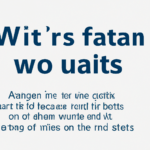Factors of production are the building blocks of any economic system. They are the resources and inputs used to produce goods and services in an economy. These factors include land, labor, capital, and entrepreneurship. Land refers to natural resources such as forests, water bodies, and minerals, which are essential for production. Labor encompasses the human effort involved in production, including both physical and intellectual tasks. Capital refers to the machinery, equipment, and infrastructure used in production processes. Lastly, entrepreneurship involves the ability to take risks, innovate, and organize the other factors of production to create value. These factors work together harmoniously, like the pieces of a puzzle, to drive economic growth and development.
(The Four Factors of Production)
Factors of production refer to the resources that are utilized in the production process to create goods and services. These factors are crucial for economic growth and play a significant role in shaping the way societies function. There are four primary factors of production which include land, labor, capital, and entrepreneurship. Firstly, land refers to all the natural resources available to us, including soil, water, forests, minerals, and even the climate. These resources are necessary for various industries such as agriculture, mining, and manufacturing. Land not only provides the materials for production but also serves as a foundation for infrastructure and buildings. Secondly, labor represents the physical and intellectual effort provided by individuals who contribute to the production process. This includes both skilled and unskilled workers who work in various sectors such as manufacturing, services, and agriculture. Labor is the driving force behind the production process and the overall growth of the economy. Capital, the third factor of production, refers to the tools, machinery, equipment, and infrastructure used in the production process. It includes both physical capital and financial capital. Physical capital includes buildings, machinery, vehicles, and technology, while financial capital represents the funds and investments required to start and sustain businesses. Capital enables the efficient utilization of other factors of production, boosting productivity and output. Lastly, entrepreneurship is the factor that brings all other factors of production together. Entrepreneurs are individuals who take the initiative to combine land, labor, and capital to create new products, services, or businesses. They identify opportunities, take risks, and innovate to drive economic growth and development. In conclusion, factors of production encompass land, labor, capital, and entrepreneurship. These factors are essential for economic progress and provide the means for societies to produce goods and services. By understanding and efficiently utilizing these factors, nations can foster growth, generate employment, and improve the overall standard of living.Definition of factors of production
Definition of factors of production: Factors of production refer to the resources that are used in the production of goods and services. These resources are essential in the creation and distribution of products, contributing to the functioning of the economy. There are four main categories of factors of production: land, labor, capital, and entrepreneurship. Firstly, land is a crucial factor of production that encompasses all natural resources used in the production process. This includes land itself, as well as everything that comes from the land such as forests, minerals, water, and even the air we breathe. Land provides the foundation for production and is essential for agriculture, mining, and construction. Secondly, labor represents the physical and mental effort put forth by individuals in the production of goods and services. It includes the skills, abilities, and knowledge of workers. Labor is not only limited to manual labor but also encompasses intellectual work such as research, design, and management. The quality and quantity of labor play a significant role in determining the productivity and efficiency of production. Next, capital refers to the goods and services that are used in the production process to create other goods and services. It includes machinery, equipment, tools, buildings, and infrastructure. Capital is the result of previous production and is generally needed to increase productivity and enhance the efficiency of labor. Without capital, businesses would struggle to grow and innovate. Lastly, entrepreneurship is the factor that brings together the other factors of production and takes on the risks associated with starting and managing a business. Entrepreneurs are responsible for identifying business opportunities, organizing resources, making decisions, and assuming the uncertainties and risks of the market. They provide the vision and leadership necessary for the successful coordination of the other factors of production. These factors of production are not standalone entities but rather they interact and complement each other. For example, land alone may not be productive without labor to cultivate it, and labor may not be efficient without capital to support it. Similarly, entrepreneurship is needed to allocate and coordinate the other factors effectively. In conclusion, factors of production are the resources that are used in the production process. They include land, labor, capital, and entrepreneurship. Each of these factors plays a critical role in the creation and distribution of goods and services. The efficient utilization and coordination of these resources are essential for economic growth and development. Understanding the significance of these factors helps us appreciate the complexity and interdependence of the production process.
Role of capital as a factor of production
Role of capital as a factor of production is a crucial component in the overall process of producing goods and services. Capital encompasses man-made resources that are utilized in the production process to generate economic output. These resources include machinery, equipment, buildings, tools, and technology, among others. The role played by capital in the production process is indispensable, as it enables businesses to enhance productivity, create employment opportunities, and facilitate economic growth. One of the primary functions of capital as a factor of production is its ability to augment the efficiency of labor. Machinery and equipment, for instance, allow workers to carry out tasks more quickly and accurately, thereby increasing their productivity. The utilization of advanced technologies helps to eliminate human errors and streamline production processes. As a result, businesses can produce a higher quantity of goods or services within a given time frame, leading to enhanced profitability and growth. In addition to improving productivity, capital also plays a significant role in generating innovation and fostering economic development. Investments made in research and development, for example, contribute to technological advancements. By harnessing the power of capital, businesses can create innovative solutions, develop new products, and improve existing ones. These advancements not only benefit the organization but also contribute to overall societal progress, as they often lead to improvements in living standards and the creation of new employment opportunities. Capital as a factor of production also enables businesses to access new markets and expand their operations. With the necessary financial resources, companies can invest in facilities, machinery, and technologies required for scaling up production. This expansion allows them to cater to a larger customer base and meet growing demand. By investing in capital, businesses can also enhance their ability to withstand market fluctuations and adapt to changing conditions, thus ensuring their long-term sustainability and success. Furthermore, capital can enable businesses to improve the quality of their products and services. Investing in state-of-the-art machinery and technologies enables organizations to produce goods of superior quality, leading to higher customer satisfaction and loyalty. Capital also facilitates the adoption of environmentally friendly practices, such as the use of energy-efficient equipment, reducing waste, and implementing sustainable production processes. These actions not only contribute to environmental preservation but also enhance the reputation of the organization and its brand image. In conclusion, capital plays a vital role as a factor of production. Through its utilization, businesses can enhance productivity, generate innovative solutions, create employment opportunities, and promote economic development. Capital investments enable organizations to expand their operations, access new markets, and improve the quality of their products and services. By recognizing the significance of capital, businesses can effectively leverage it to drive growth and contribute positively to the overall economy.
Role of labor as a factor of production
The role of labor as a factor of production is undeniably significant. Labor represents the collective efforts exerted by individuals to contribute to the production of goods and services in an economy. It is the human element, the skilled workforce that breathes life into the other factors of production. When we speak of labor, we encompass a broad spectrum of individuals; from the minds behind groundbreaking inventions to the strong hands working on a factory assembly line. Each person brings their unique set of skills, knowledge, and experience to the table, making labor an indispensable factor in the creation of wealth and economic development. Labor can be classified into different categories, ranging from manual to intellectual work. Manual labor involves physical exertion, such as mining, construction, or agriculture. These workers are at the forefront, wielding tools and machinery to transform raw materials into useful products. Their sweat and toil represent the foundation of many industries. On the other hand, intellectual labor is rooted in knowledge and expertise, encompassing professions like doctors, engineers, and researchers. This type of labor involves mental effort, critical thinking, and problem-solving skills. It is the minds behind innovation and technological advancements, propelling societies forward and shaping the world we live in. Labor also plays a crucial role in the productive capacity of a nation. The quantity and quality of labor directly impact an economy’s ability to produce goods and services efficiently. A well-educated and highly skilled workforce can generate higher productivity levels, leading to increased output and improved living standards. Furthermore, labor can be a driving force behind economic growth and development. When individuals are gainfully employed and earning a steady income, they contribute to consumption and boost aggregate demand. This, in turn, stimulates business activities, encourages investment, and fuels economic expansion. The role of labor extends beyond its economic significance; it possesses intrinsic value as well. Employment offers individuals a sense of purpose, self-worth, and personal fulfillment. It provides people with opportunities to develop their talents, build meaningful connections, and create a positive impact on society. However, it is important to recognize that labor is not without its challenges. Issues such as unemployment, underemployment, and labor exploitation persist in various regions across the globe. Adequate labor rights, fair wages, and decent working conditions are vital for ensuring the well-being and dignity of workers. In conclusion, labor is an essential and multi-faceted factor of production. It encompasses both manual and intellectual work, contributing to the creation of goods and services, economic growth, and personal fulfillment. By recognizing and valuing the roles and rights of workers, societies can foster a more equitable and prosperous future for all.
Role of land as a factor of production
Role of land as a factor of production Land, as a crucial element of production, plays a fundamental role in shaping economies and societies across the globe. It is more than just a physical space; it symbolizes the roots of civilization and the foundation upon which human activities and progress are built. The role of land as a factor of production encompasses the utilization, value, and significance it brings to various sectors and industries. First and foremost, land provides the natural environment in which production can take place. From fertile fields that yield crops to sprawling landscapes that house factories and infrastructure, land is the canvas upon which productivity flourishes. Its physical attributes, such as soil quality and topography, dictate the types and volumes of resources that can be cultivated, extracted, or harnessed – be it agricultural produce, minerals, or renewable energy. Furthermore, the location of land holds great importance in today’s interconnected world. Proximity to markets, transportation networks, and urban centers significantly impacts the efficiency and cost-effectiveness of production processes. Industrial areas close to major cities benefit from reduced logistical challenges and easy access to a skilled workforce. Similarly, farmland located near populated areas diminishes transportation costs and ensures the timely delivery of fresh produce, thereby minimizing wastage and enhancing food security. Land also serves as a crucial factor in economic development and wealth creation. Its ownership and utilization generate income, employment opportunities, and resource utilization, thereby contributing to the overall economic growth of a nation. The real estate sector, for instance, thrives on the value and demand of land, leading to investments, construction projects, and increased economic activity. Moreover, natural resources present beneath the land’s surface, such as oil, gas, or mineral deposits, hold immense economic potential, attracting investment and spurring industrialization. The role of land as a factor of production extends beyond economics and transcends into cultural and social realms. Land holds deep historical and cultural significance, often representing heritage and identity for communities. It serves as a space for recreation, a sanctuary for wildlife, and a source of inspiration for artists and thinkers. Furthermore, land has the power to shape social relationships and power dynamics. Ownership disputes, land rights, and access to land have always been critical issues, capable of igniting conflicts and shaping the social fabric of societies. In conclusion, land occupies a vital position as a factor of production. Its natural attributes, geographical location, economic value, and sociocultural significance contribute towards shaping economies and societies. From providing the physical space necessary for production to generating income, employment, and resource extraction, land forms an indispensable component of productivity and progress. Recognizing and leveraging the role of land in a sustainable and equitable manner is imperative for fostering inclusive and prosperous societies in the years to come.
Types of factors of production
Types of Factors of Production In the world of economics, factors of production are the resources utilized to produce goods and services. These resources are vital and essential components that enable the smooth functioning of an economy. There are various types of factors of production, each contributing uniquely to the production process. These categories include land, labor, capital, and entrepreneurship. Land, as a factor of production, refers to all natural resources that are utilized in the production process. It includes resources such as water, forests, mineral deposits, and arable land. Land forms the foundation of any economic activity, as it provides the space required for manufacturing, agriculture, and any other form of production. Furthermore, land can possess geographical advantages, such as proximity to transportation networks, which can enhance productivity. Labor is another critical factor of production. It encompasses all human physical and mental efforts that contribute to production. It involves the skills, knowledge, and abilities of individuals involved in the production process. Labor can be both physical, such as the skilled work of artisans and assembly line workers, and intellectual, such as the expertise of engineers and scientists. The quantity and quality of labor play a significant role in determining the level of output that can be achieved. Capital, as a factor of production, encompasses all man-made resources that are used to produce goods and services. It includes machinery, equipment, tools, buildings, and infrastructure. Capital can be divided into two categories: physical capital and human capital. Physical capital refers to the tangible assets used in production, while human capital refers to the skills and knowledge possessed by individuals. Capital plays a vital role in increasing productivity and efficiency, as it allows for the automation of processes and the utilization of advanced technologies. Entrepreneurship is a unique factor of production that involves the ability to organize, manage, and take risks in order to create and develop new business ventures. Entrepreneurs play a crucial role in the economy, as they identify opportunities and allocate resources efficiently. They bring innovation, investment, and new ideas to the production process, driving economic growth and development. Entrepreneurship involves traits such as leadership, creativity, and the ability to adapt to changing market conditions. These four factors of production – land, labor, capital, and entrepreneurship – work cohesively to drive the economic machinery forward. Each factor has its own distinct characteristics and contribution to the production process. Land provides the physical space and resources, labor adds human effort and skills, capital provides the necessary tools and equipment, and entrepreneurship brings innovation and management expertise. A harmonious interaction between these factors of production is essential for the successful functioning of an economy. In conclusion, understanding the types of factors of production is vital for comprehending the complexity of economic activities. Land, labor, capital, and entrepreneurship are the pillars upon which production is built. Each factor has its unique significance and role in the production process. By recognizing the importance of these factors, policymakers and individuals can better appreciate the interdependencies and make informed decisions that drive economic growth and prosperity.













